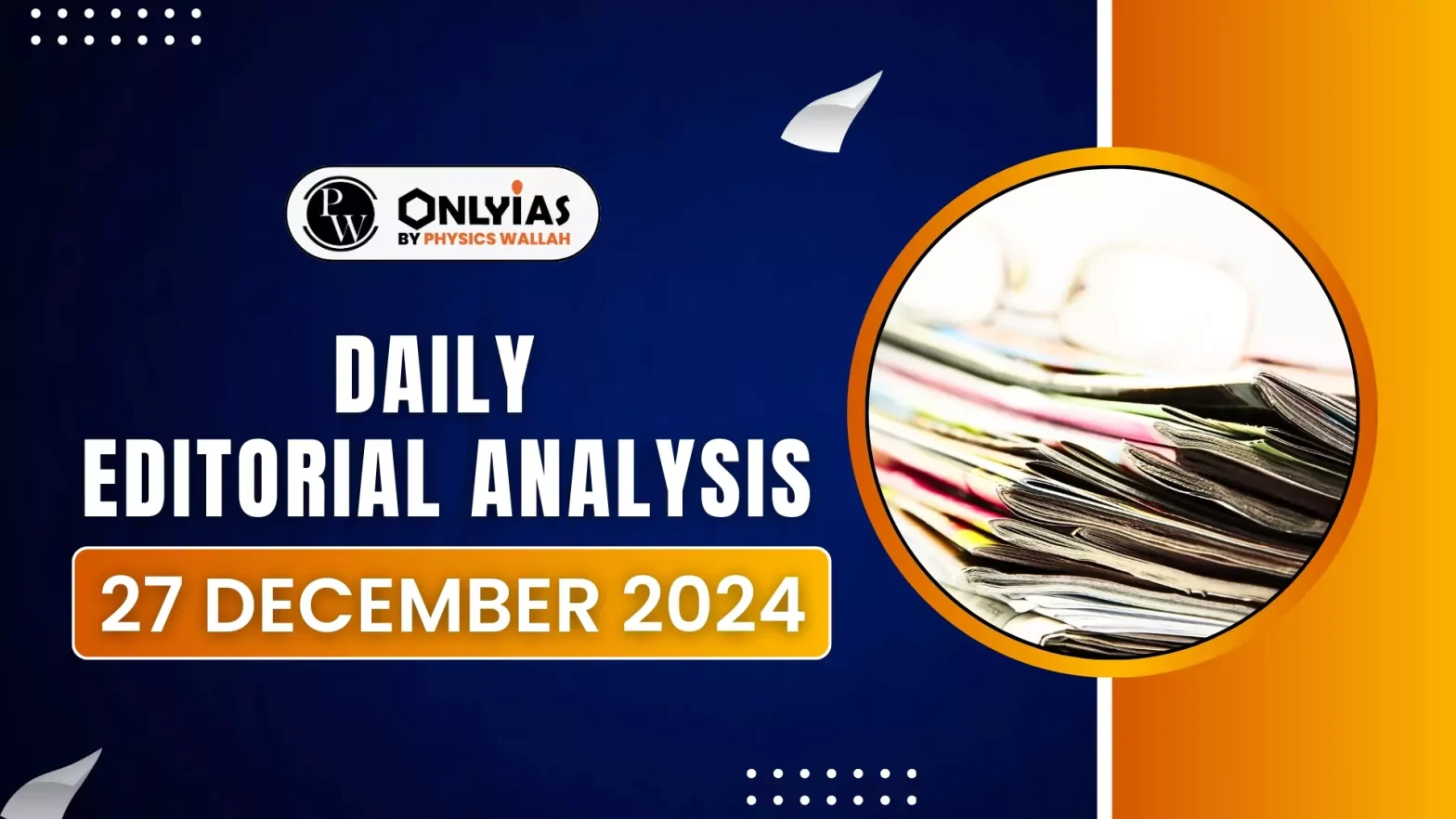The ongoing farmers’ protest centers around the demand for a legal guarantee of Minimum Support Price (MSP) for 23 crops, beyond just wheat and rice.
Understanding Minimum Support Price (MSP)
- What is MSP?: The MSP refers to the minimum price at which the government guarantees to purchase certain crops from farmers.
- The term “minimum” indicates the lowest possible price, “support” refers to assistance provided to farmers, and “price” reflects the value set to ensure minimal support for their produce.
- Aim of MSP: This scheme was introduced to act as a safety net for farmers, ensuring they could rely on government support if their crops didn’t sell in the market.
- Origins of MSP: MSP was introduced in the 1960s (Green Revolution) when India faced a severe food crisis, relying on food imports and fearing famines.
- To support farmers, the government implemented MSP, guaranteeing a fixed price for their crops to stabilize the agricultural sector.
- Challenges Overlooked: The government focused on boosting agricultural production by providing free fertilizers, subsidies, and chemicals.
- This shifted farmers, who were previously self-sufficient, into dependency on the market and, in turn, vulnerable to exploitation by traders.
- Over time, the cost of production outpaced the MSP, contributing to the financial distress of farmers, which some reports link to the rising number of farmer suicides.
- Report on Farmers’ Suicide: A recent Supreme Court committee report stated that over 400,000 farmers have committed suicide in the last three decades, and the true figure may be as high as 700,000.
Enroll now for UPSC Online Course
Debate on MSP in Punjab
- Argument Against MSP in Punjab: Some critics argue that farmers in Punjab do not need MSP.
- Depleting Groundwater: Concerns about depleting groundwater levels highlight that it takes 3,000 to 3,500 liters of water to produce just one kilogram of rice.
- Some experts warn that Punjab’s groundwater may last only 15 to 20 more years for drinking purposes.
- Call for a Guaranteed MSP Law: In response to these challenges, farmer unions have demanded a guaranteed MSP law for 23 crops. This would not only ensure a fair price for farmers but also promote crop diversification.
- Benefits of Crops Diversification: By growing crops that yield better profits than wheat and paddy, farmers in Punjab and Haryana could reduce their reliance on water-intensive crops.
- Addressing Depleting Groundwater: This would, in turn, address the groundwater issue and offer a sustainable solution to the region’s agricultural challenges.
Is MSP Guarantee Feasible?
- Estimates suggest that the government could guarantee MSP for these crops with just Rs 20,000 to Rs 50,000 crore.
- This investment would be relatively small compared to the benefits of ensuring a stable agricultural system and reducing the country’s dependence on foreign imports.
|
Benefits of MSP Guarantee
- Economic and Environmental Benefits: Guaranteeing MSP and promoting crop diversification could lead to significant economic and environmental benefits.
- Low Electricity Consumption: For example, crop diversification could reduce electricity consumption in agriculture by up to 60%, making electricity cheaper for households in Punjab.
- Saving Groundwater: Additionally, by growing more diverse crops, farmers could save vital groundwater resources, benefiting both agricultural and non-agricultural sectors.
- Reduce Reliance on Oil and Pulses Imports: Furthermore, this shift could reduce India’s reliance on crude oil and pulses imports, saving the country nearly Rs 2 lakh crore annually.
- Punjab’s Potential for Self-Sufficiency: Punjab has the potential to produce a variety of crops, including oilseeds and pulses, which could help India become self-sufficient.
- Protecting Public Health: A guaranteed MSP would also help address health concerns, particularly regarding palm oil, which is commonly used in food products.
- Studies show that palm oil is processed with dangerous chemicals that pose health risks.
Check Out UPSC CSE Books From PW Store
By guaranteeing MSP for domestic crops, the government could ensure the public’s health while also preserving national wealth.
| India buys palm oil mainly from Indonesia, Malaysia and Thailand. |
Conclusion
MSO could address economic, environmental, and social challenges while ensuring farmers’ well-being and the country’s self-sufficiency. The government must take immediate action to secure the future of farming in India and safeguard the livelihoods of millions of farmers.
![]() 27 Dec 2024
27 Dec 2024
